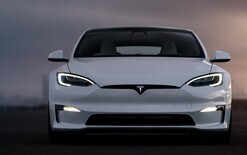VW global news wrap
Posted on 07 October, 2015
Volkswagen Group’s incoming chairman has warned his managers the company’s diesel-emission scandal poses “an existence-threatening crisis”.
Finance chief Hans Dieter Poetsch, who is expected to be named chairman this week, says despite the predicament in which the company finds itself, he believes it can overcome the crisis, according to Germany’s Welt am Sonntag newspaper.
The crisis stems from the disclosure by the Environmental Protection Agency (EPA) last month that VW had rigged nearly five million diesel cars in the US to pass emissions tests. The company now admits 11 million units are affected worldwide.
AUSTRALIA: VW SUSPENDS SOME CAR SALES
Volkswagen has suspended the sale of some diesel cars in Australia while it addresses its emissions-cheating scam.
Following a meeting with government authorities, the company has decided to immediately halt the sale of affected vehicles fitted with 1.6 or two-litre EA189 diesel engines. “The suspension will remain until the emission issues are addressed in those vehicles,” it says in a statement.
The Australian Competition and Consumer Commission says the presence of defeat devices will violate consumer law and risk fines of AU$1.1m per breach.
Audi is also suspending sales of vehicles fitted with two-litre EA189 diesel engines, which relates to its A4, A5 and Q5. It is estimated there are more than 40,000 vehicles already on the road in Australia fitted with the diesel powerplants at the centre of the scandal.
EUROPE: MARQUES WANT NEW LIMITS DELAYED
European carmakers have lobbied behind the scenes in Brussels for a one-year delay to the introduction of planned EU limits on nitrogen-oxide (NOx) emissions.
The EU wants to introduce an 80mg/km emissions limit for all new cars and vans from September 1, 2018. But in a letter to EU ministers, seen by The Guardian newspaper, the head of the European Automobile Manufacturers’ Association (ACEA), Carlos Ghosn, describes the timetable as unrealistic.
Short-term improvements are possible for the approval of new car designs by September 2017 he adds, “but not before September 2019 for all new registrations”.
The European Commission is aiming to have real-world driving emissions monitoring measures in place by next year, which could then be applied to all new vehicles by the northern hemisphere autumn of 2018. At present, about 90 per cent of diesel cars on European roads break the EU’s pollution limits with the average vehicle emitting seven times more NOx than European law permits.
The ACEA letter – signed by Ghosn and dated September 29 – appears to be a far-reaching attempt to reset the EU’s agenda on emissions. At one point, he complains to ministers “the current debate related to the use of defeat devices is being confused with the important discussion on how to better measure real emissions values”. He adds the outcome of the conversation could impact on a vast amount of diesel-powered vehicles produced in Europe.
US: CAR SALES BOOM – EXCEPT FOR VW
September is being described as a blockbuster sales month for the US automotive industry – except for Volkswagen, reports AP. Strong consumer demand, easy credit and generous incentives combined to fill dealer showrooms. The industry sold 1.44 million cars and light trucks last month, up 15.8 per cent from a year ago.
But the Volkswagen brand struggled after September 18, which was when the US government revealed nearly 500,000 VW and Audi diesels sold there had software that let them cheat on emissions tests. VW halted sales of 2015 and 2016 diesel models of its Passat, Jetta, Golf and Beetle.
There was a bright spot for the Volkswagen Group. Its luxury Audi brand saw sales climb by 16 per cent and says September was a record month for the brand in the US.
UK: INSPECTION AGENCY FUNDED BY INDUSTRY
The UK organisation examining the practices of the car industry following the VW scandal has been accused of a conflict of interest after it emerged that about three-quarters of its funding comes from companies it is investigating.
According to its latest annual report, the Vehicle Certification Agency (VCA) receives 69 per cent of its income from car manufacturers, who pay it to certify their vehicles are meeting emissions and safety standards.
The apparent conflict of interest raised by VCA’s funding has prompted lawyers to demand an independent investigation into the industry, and will raise fresh concerns over the UK’s government’s handling of air-pollution issues, reports The Guardian newspaper.
Last week, the Observer revealed how the British government has been seeking to block EU legislation to force member states to carry out random emissions checks. It has also been accused of ignoring a supreme court ruling the government needs to draw up plans to tackle air pollution, which has breached EU limits for years.
Alan Andrews, a lawyer at Client Earth, believes the VCA’s funding sources make it an inappropriate to investigate the automotive industry. He says: “These figures show the agency relies for funding on the industry it is meant to be investigating.”
Volkswagen says 1.2m vehicles in the UK are involved in the emissions scandal. That’s more than one-in-10 diesel cars on British roads.





